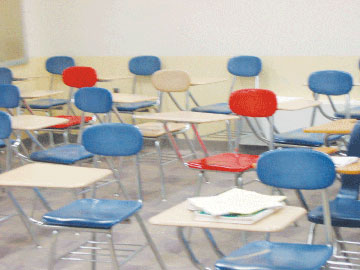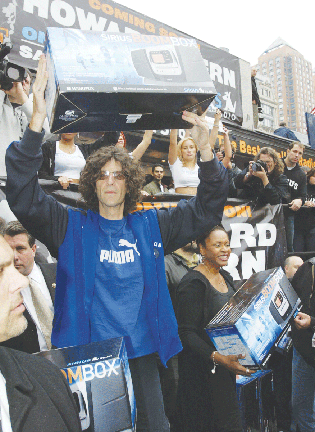Department of Athletics Suffers $173,000 Deficit
November 5, 2004
The UMass Boston Department of Athletics had an accumulative deficit of $173,000 at the end of the Fiscal Year 2004 (September 2003 – June 2004), Pat Burns, Interim Director of Athletics, revealed. Burns insisted that the loss was mainly because the Athletics Fee, the department’s primary revenue resource, levied on part time students has been dramatically cut. Since Fall 2002, UMB students have paid for the fee each semester according to the number of credits they take. In both the Fiscal Year 2004 and 2005, the newly-increased fee is set at $7.38 per credit and maximum fee of $88.50 which is equivalent to 12 credits. Until Spring 2002, fixed rates had been used as students with seven or more credits paid $63, and those with six credits or less were charged $39. Part time students turned out to be the biggest beneficiaries from the per-credit system. Those with three credits now pay only $22.14, dropping 76% from the fixed rate. Those with five credits, issued a $36.90 bill, are now down by $2.10. Burns said, “It is good that expenses for students have become less. But it also means less revenue for [the Department of Athletics].” According to Burns, the deficit is partly because the department’s expenses have inflated due to a state policy. At the beginning of the 1980s, Massachusetts had fully paid for the workers of the department. Since then, the state has gradually removed its burden. As a result, the department is now responsible for salaries of twenty-one full time workers and other part-timers. The state additionally cut payments for two full time jobs last year: Assistant to the Director of Athletics and Recreation as well as Assistant Athletic Director of Intercollegiate Athletics. Burns also claimed that it’s difficult to reduce spending because of the department’s people-oriented nature. “We don’t have much to cut. We have to maintain our activities both indoor and outdoor, such as varsity teams, staffs, facilities and coaches,” he commented. Many on campus might not believe all the accounts Burns cast. Full time students have experienced substantial increases of the fee in recent years. Their tuition bills for each semester have risen from $63 to $88.50 within two years. Even taking one course in a summer session costs them $48, while it was only $30 two years ago. All the freshmen pay $145, up from $100 a year ago, during students’ first semester enrolled at UMB. That’s all not including the other fees. Amid the financial crisis, the department has tried to develop other options to earn income. The UMB Annual Golf Classic in June generates supplemental revenue from the $110 individual price and the $400 foursome price. The Beacon Club collects donations from alumnus ranging from $25 to $100. The department looks for companies that would be interested in posting advertisements at various athletic events on campus and in various publications, Burns said. The department, however, has no easy path, as it failed to be in the black for the Hall of Fame banquet on October 23, mainly because of a lack of sponsors. With an ample funding by the department very unlikely, some teams find financial supports from outside, according to Burns. Both softball and baseball teams sold T-shirts and received donation from alumnus to afford their trips to Orange, CA and Fort Myers, FL, respectively in March 2004.






















































